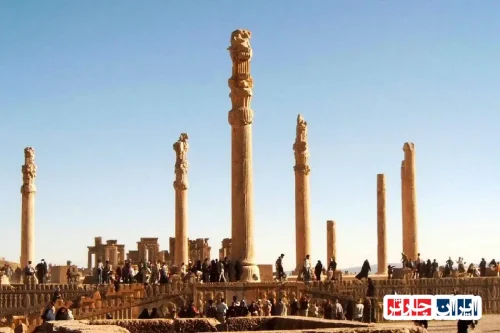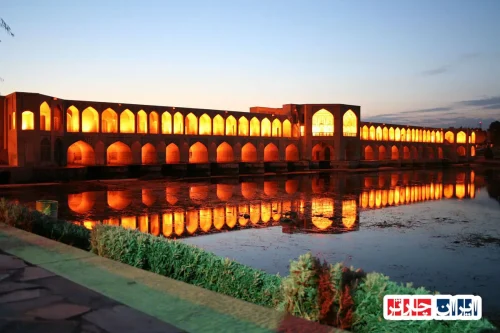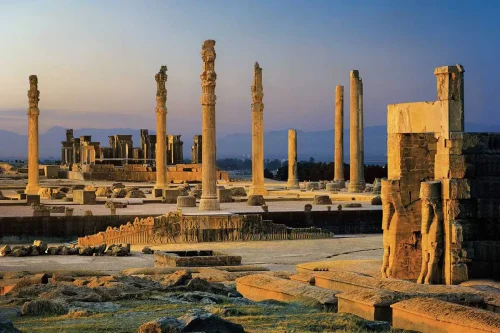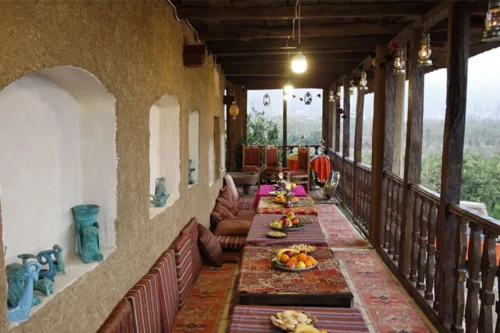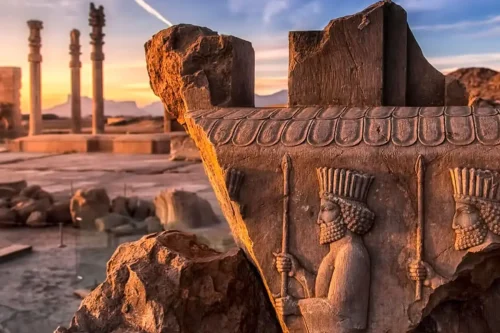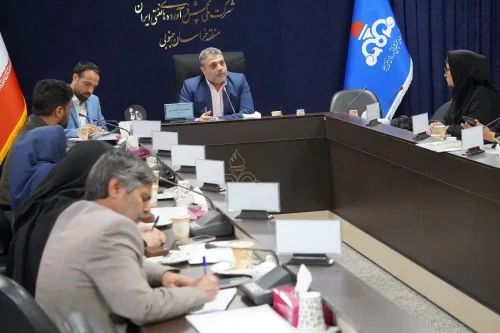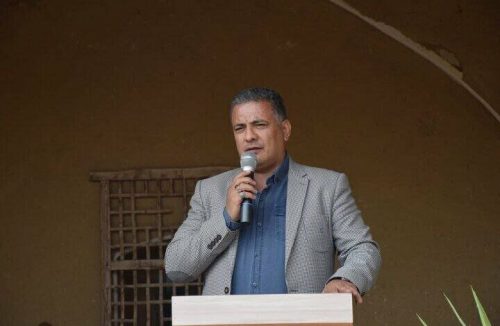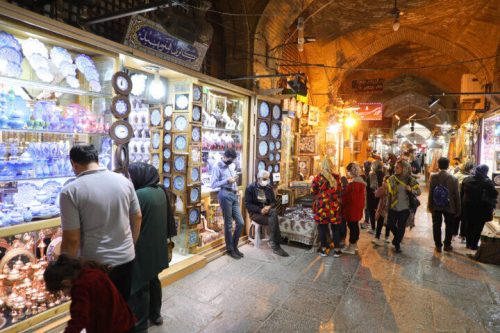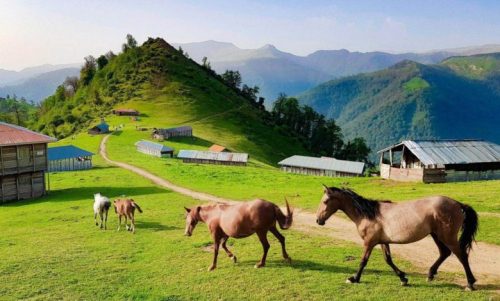News Source : https://www.mehrnews.com/news/6282172/%DA%AF%D8%B1%D8%AF%D8%B4%DA%AF%D8%B1%DB%8C-%D8%A7%D8%AF%D8%A8%DB%8C-%D8%AF%D8%B1-%D9%85%D8%A7%D8%B2%D9%86%D8%AF%D8%B1%D8%A7%D9%86-%DB%B1%DB%B2-%D8%AA%D9%81%D8%A7%D9%87%D9%85%D9%86%D8%A7%D9%85%D9%87-%D9%85%D9%86%D8%B9%D9%82%D8%AF-%D8%B4%D8%AF
Literary Tourism in Mazandaran: 12 Memorandums Signed
The Director General of Cultural Heritage, Handicrafts and Tourism of Mazandaran has taken a significant step in developing the region’s literary tourism by signing 12 memorandums. Highlighting Mazandaran’s cultural and literary capacities, he stated that this agreement provides an opportunity to expand scientific and research collaborations between universities and the Cultural Heritage Department. The memorandums will support research projects related to literary tourism and offer necessary facilities for researchers. Moreover, the Director General noted that this collaboration would significantly enhance the scientific and technical levels of students and the department’s staff, potentially attracting more literary tourists to Mazandaran.
These 12 memorandums demonstrate Mazandaran’s commitment to preserving and enhancing its cultural and literary heritage. With the implementation of the programs outlined in these memorandums, a considerable increase is expected in research and study activities in the field of literary tourism, playing an essential role in attracting tourists interested in culture and literature. The Director General emphasized that this memorandum forms the foundation for sustainable literary tourism development in Mazandaran.
Finally, the Director General added that effective cooperation between industry and academia can help achieve the long-term goals of this memorandum, witnessing the growth and development of literary tourism in Mazandaran. This agreement not only strengthens scientific relations but can also serve as a successful model for other provinces.
Key Agreements in the Development of Literary Tourism in Mazandaran
Through the signing of 12 cooperation agreements, literary tourism in Mazandaran has witnessed significant growth. These agreements have not only strengthened scientific relations between universities and the Cultural Heritage Department but also paved the way for numerous research projects in the field of literature and cultural tourism. The Director-General of Mazandaran’s Cultural Heritage emphasized that these agreements are a crucial step in preserving and promoting the literary heritage of Mazandaran and are expected to positively impact by attracting more literary tourists and increasing the cultural value of the province.
The Role of Local Universities in Enhancing Mazandaran Literary Tourism
One of the main objectives of the signed agreements is to maximize the scientific potential of Azad universities in Mazandaran. These collaborations have facilitated the holding of seminars, workshops, and educational courses related to literary tourism. University students and faculty, acting as driving forces in the development of this field, have engaged in creative and research activities that have enhanced the quality of literary tourism programs in Mazandaran.
Scientific and Research Opportunities in Collaboration with the Cultural Heritage Department
The agreements signed between the Iran National Science Foundation and the University of Mazandaran have provided unique opportunities for researchers. These collaborations enable comprehensive and deep research in various literary and cultural fields. With the support of the Cultural Heritage Department, numerous research projects are underway examining Mazandaran’s literary history and its impact on literary tourism.
Support for Research Projects Related to Literary Tourism
One of the main axes of the agreements is the support of research projects related to literary tourism. This support includes financial resources, access to informational resources, and providing the necessary facilities for conducting research. Through these measures, researchers can conduct a more in-depth examination of various aspects of literary tourism and propose innovative solutions for the development of this field.
Cultural and Literary Attractions of Mazandaran for Tourists
With its rich cultural heritage and abundant literature, Mazandaran is a premier destination for literary tourists. The region is home to prominent works by famous poets and writers such as Nima Yushij, Salman Harati, and Taleb Amoli, all of whom have played significant roles in strengthening Mazandaran’s literary identity. Literary tourism programs are designed around this cultural heritage, allowing visitors to become well-acquainted with the literary and cultural history of the area.
Programs to Enhance the Academic Level of Students and Cultural Heritage Personnel
The cooperation agreements encompass numerous programs aimed at enhancing the academic and technical level of students and personnel of the Cultural Heritage Department. These programs include specialized training courses, practical workshops, and research opportunities that facilitate the transfer of new knowledge and skills to individuals involved in literary tourism. Enhancing these individuals’ scientific capabilities plays a crucial role in improving the quality of literary tourism services in the province.
Attracting Scientific and Technical Investments for Literary Tourism in Mazandaran
One of the goals of the signed agreements is to attract scientific and technical investments for literary tourism projects. By creating appropriate infrastructures and providing research facilities, Mazandaran has positioned itself as a leading center for literary tourism. Due to the region’s high potential in literature and culture, both domestic and foreign investors are interested in investing in various projects.
The Impact of Agreements on the Sustainable Development of Literary Tourism
The signed cooperation agreements play a significant role in the sustainable development of literary tourism in Mazandaran. By creating favorable conditions for research and scientific collaboration, these agreements help ensure the long-term growth of this field. Moreover, respecting the region’s cultural and literary heritage through these agreements ensures that the development of literary tourism is aligned with preserving cultural values.
Successful Models of Industry and University Collaboration in Mazandaran
The collaborations between the Cultural Heritage Department and Azad universities in Mazandaran are recognized as a successful model for industrial and academic collaborations. These collaborations, by creating bridges between science and industry, have facilitated the exchange of knowledge and technology. The result of these collaborations has been successful projects in literary tourism, demonstrating the replicability of this model in other fields and provinces.
Holding Literary Cultural Events and Ceremonies in Mazandaran
Holding literary cultural ceremonies and events is one of the main points of strengthening literary tourism in Mazandaran, which is carried out regularly through the signed agreements. These ceremonies include literary festivals, historical entertainments, and cultural exhibitions, attracting not only domestic visitors but also foreign tourists to the region. Creating such events significantly contributes to enhancing the public’s understanding of Mazandaran’s culture and literature.
FAQ
- What is the focus of the Director-General of Mazandaran’s Cultural Heritage?
- The Director-General focuses on developing literary tourism in the province, believing that Mazandaran has a lot of potential in this field.
- How many cooperation agreements were signed in Mazandaran?
- In Mazandaran, 12 cooperation agreements were signed.
- Which university has signed a cooperation agreement with the Cultural Heritage Department of Mazandaran?
- The Azad University of Mazandaran has signed a cooperation agreement with the Cultural Heritage Department.
- What are the main objectives of the cooperation agreement?
- The main objectives include developing research services, optimizing the potential of universities and the department, creating effective links between industry and academia, supporting faculty and student research, and enhancing academic and technical levels.
- What is the duration of this agreement?
- The duration of this agreement is 12 months.
- How does the agreement support student projects and theses?
- The agreement provides guidance and support for master’s and doctoral projects and theses based on the needs of the department.
- What are the commitments of the Cultural Heritage Department in this agreement?
- Commitments include facilitating visits of faculty and students, announcing research priorities, signing research contracts, and assisting in faculty participation.
- What programs were included in the Traditional Tirmeh Thirteen ceremony?
- The programs included traditional singing, musical performances in the Mazandaran and Gilaki style, and poetry reading in the local dialect.
- How did people react to the Traditional Tirmeh Thirteen ceremony?
- People reacted positively to the ceremony, with guests and tourists being traditionally served tea, beetroot, squash, and potatoes.
- On what tradition is the Tirmeh Thirteen ritual based?
- This ritual is based on the ancient calendar of the thirteenth night of the Tir month in the Tabar Mazandaran.
- Who is Taleb Amoli and why is he important for literary tourism?
- Taleb Amoli is one of the most talented poets of the Indian style, who has received less attention in Iran compared to other poets and can be considered a national figure and a literary tourism destination.
- Which famous poets from Mazandaran can help with literary tourism?
- Nima Yushij, Salman Harati, Taleb Amoli, and other renowned Mazani figures are among the potential aids in Mazandaran’s literary tourism.
- What is the view of the Director-General of Cultural Heritage regarding literary tourism in Mazandaran?
- The Director-General emphasized that literary tourism should become one of Mazandaran’s main products, with particular attention to its development.
- How does the cooperation agreement help improve the academic and technical levels of students?
- The agreement includes knowledge transfer, retraining researchers, commercialization, manufacturing sample products, and engineering production to enhance students’ academic and technical levels.
- How does the cooperation agreement create effective links between industry and academia?
- The agreement facilitates collaboration in research and consultancy projects between industry and academia, creating effective links.
- How are applicable department projects supported by the university?
- The university provides scientific support for applicable projects needed by the organization, adhering to the regulations of both parties.
- How do cultural programs like the Traditional Tirmeh Thirteen help literary tourism?
- Cultural programs like traditional music performances and poetry reading in the local dialect enhance the cultural appeal of the region and can attract tourists interested in literature and culture.


